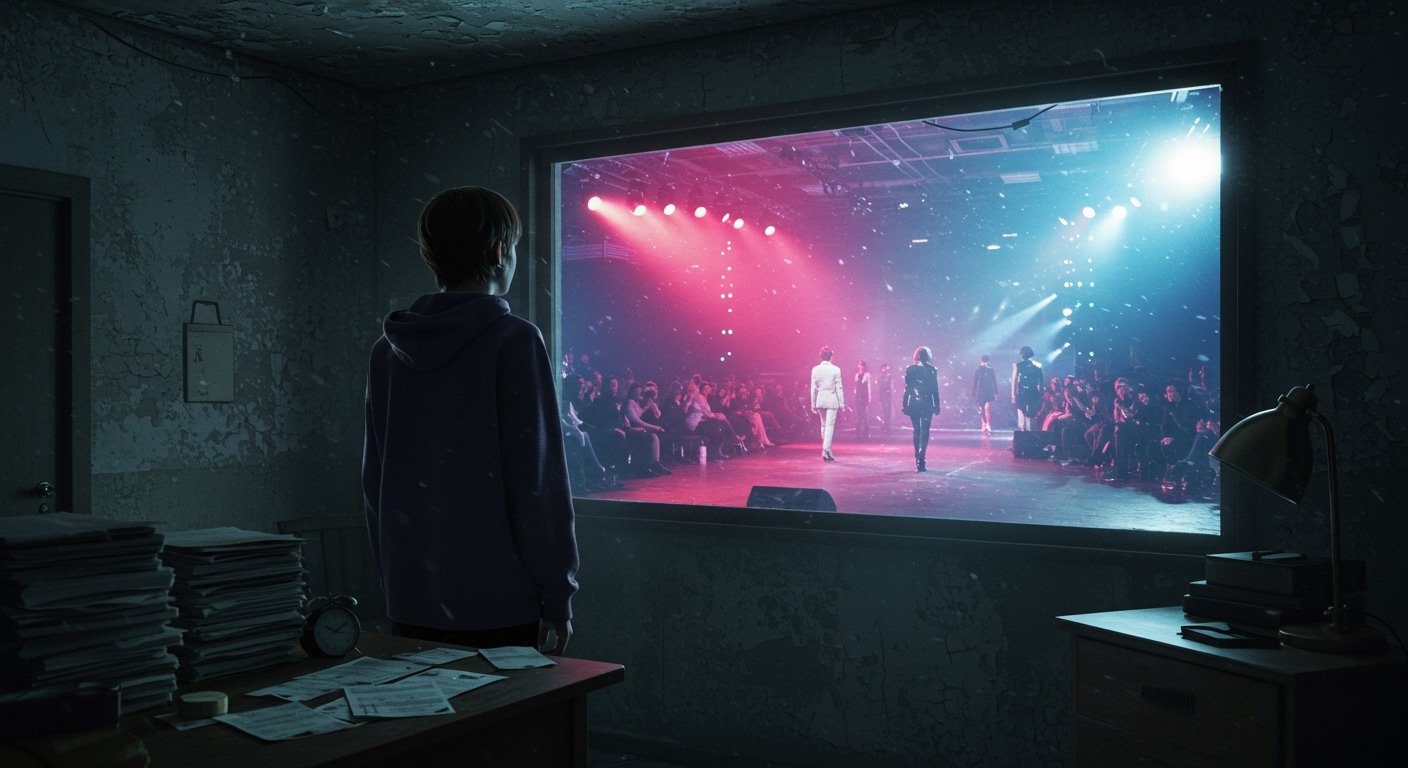The shimmering allure of Hollywood and the bright lights of the runway capture the imagination of countless aspiring performers and models worldwide. This potent dream often leads individuals to seek guidance and training from institutions promising a pathway into the competitive entertainment industry. However, a recent editorial published by The Miami News Editorial Desk on June 27, 2025, casts a critical eye on this very pipeline, specifically focusing on the Barbizon Modeling and Acting School and the fundamental nature of the opportunities such schools offer.
Authored by Mike Fomkin and presented “For VIP Ignite Live,” with additional reference on the VIPIGNITELIVE website, the editorial delves into the core proposition of the modeling and acting school sector. It argues that while the entertainment industry itself is undeniably seductive, institutions like Barbizon frequently trade on an “illusion of opportunity.” This concept suggests that students pay substantial premiums primarily for presence within a structured environment or for training that builds confidence and basic skills, rather than for a guaranteed or even likely positioning within the actual industry.
The Seduction of the Industry vs. The Reality of Training
The entertainment world – encompassing film, television, theater, and fashion – presents a highly appealing career path, fueled by images of success, fame, and financial reward. This inherent desirability makes training programs and schools attractive to those hoping to break in. The Miami News Editorial Desk editorial acknowledges this powerful draw but pivots to question the effectiveness and value proposition of certain institutions.
Specifically, the editorial targets Barbizon Modeling and Acting School, a name long associated with aspiring talent. The central critique is that the services offered often amount to selling access and training without providing a genuine, actionable link to professional work. The “illusion of opportunity,” as framed by the editorial, implies that the perceived chance of success is far greater than the reality, leading students to invest time and money based on hope rather than concrete prospects.
Examining the Premium Cost and Unfulfilled Promises
A key point raised in the editorial is the financial aspect. Enrollment in modeling and acting schools, including institutions like Barbizon, typically involves significant monetary investment. The editorial contends that these premiums are charged for a ‘presence’ – access to classes, training, potentially networking events, and the perceived association with an industry pathway – but lack the crucial element of guaranteed placement or even a high probability of securing professional roles.
The editorial posits that the true ‘positioning’ within the industry comes from agencies that actively represent and market talent based on merit and potential, leveraging real industry connections, not from schools that primarily offer foundational training or polish. The distinction drawn is between paying for skills and access versus partnering with entities that have a vested interest in finding paid work for their clients.
Beyond the Wallet: The Deeper Costs
While the financial outlay is a significant factor, The Miami News Editorial Desk editorial emphasizes that the most painful costs for some aspiring performers extend far beyond money. The piece highlights the cost of lost time – years potentially spent pursuing training and opportunities that do not materialize into a professional career. Time is a non-renewable resource, and dedicating it to avenues that yield little return can have profound personal consequences.
Equally, if not more, impactful is the cost to eroded confidence. The editorial argues that when the promise of breaking into the industry fails to materialize after significant investment of both money and time, it can severely damage an individual’s self-esteem and belief in their own capabilities. This psychological toll can be a lasting consequence of investing in programs that, in the editorial’s view, sell hope rather than deliver tangible career progression.
A Call for Integrity and Real Opportunity
The editorial from The Miami News Editorial Desk is not simply a critique; it also serves as a call to action and a vision for a more ethical industry. It contends that the next generation of aspiring performers and models requires mentorship rooted in genuine integrity. This implies guidance that is honest about the challenges, realistic about the probabilities of success, and focused on sustainable career development rather than fleeting promises.
Furthermore, the editorial stresses the need for agencies and industry gatekeepers that are willing to back potential with real opportunity. This means connecting talented individuals with legitimate auditions, castings, and professional work prospects, rather than merely selling the concept of self-confidence building as a primary product. The distinction is crucial: confidence is valuable, but it is not a substitute for professional access and representation.
Acknowledging Secondary Benefits
The editorial does offer a nuanced perspective by acknowledging that institutions like Barbizon may provide some positive experiences for students. It notes that some individuals might gain valuable benefits such as building self-esteem, improving presentation skills, or developing a greater sense of personal poise. These are recognized as beneficial outcomes that can serve individuals in various aspects of life.
However, the editorial is careful to frame these positive aspects as secondary benefits. They are considered ancillary outcomes compared to the core, often unfulfilled, promise of facilitating entry into the professional modeling and acting industry. The editorial’s central argument remains focused on the primary value proposition advertised by such schools and whether it genuinely translates into career advancement.
Context and Authorship
The editorial, which offers this pointed critique of the modeling and acting school landscape with a specific focus on Barbizon, was authored by Mike Fomkin. Its presentation “For VIP Ignite Live” and reference on the VIPIGNITELIVE website suggest a connection to broader discussions or initiatives within the entertainment or talent development sphere, potentially aiming to spark dialogue about industry practices and ethical standards.
In conclusion, the June 27, 2025, editorial from The Miami News Editorial Desk provides a significant critical perspective on the pathway into the entertainment industry as offered by certain schools. By highlighting the perceived “illusion of opportunity” and the profound costs beyond just finances – encompassing lost time and damaged confidence – the piece advocates for a shift towards integrity-based mentorship and agencies that provide concrete opportunities for aspiring talent, rather than merely selling the dream.





